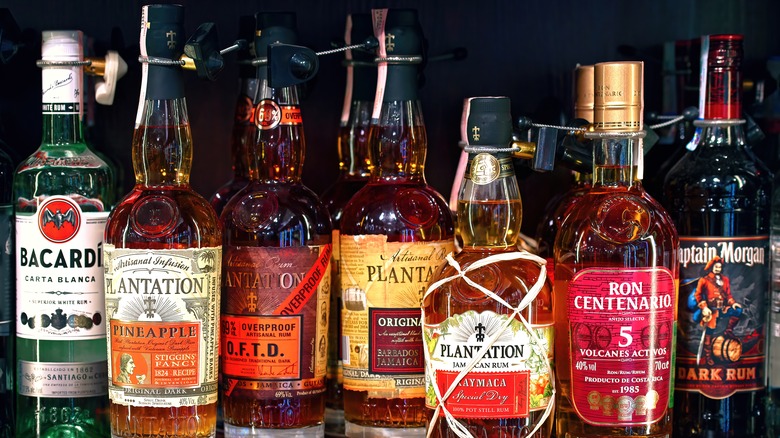How Does Maceration Impact Rum?
The process of distilling rum — or making any form of alcohol — requires a slew of steps that all collectively result in your go-to liquor. With rum in particular, there are a variety of types, from spiced to white and gold to dark. To get to a given flavor profile, rum brands often embrace the process of maceration. Maceration refers to an old-school alcohol flavoring technique that bears a large responsibility for the taste of your favorite rum.
Puerto Rico's oldest rum brand, Ron de Barilito, states that it uses the ancient process of maceration, by flavoring a small portion of the product with dried fruits and spices before aging. The Puerto Rican brand keeps the exact details of their maceration efforts secret, as they've homed in on the process since the 1800s. "The combination of production methods, use of foreign barrels, and aging for extensive years at a time were all techniques that had yet to be seen in the world of rum back in the 1800s," Maggie Matias, Ron de Barilito's chief commercial officer, told Tasting Table.
In more general and broad terms, rum brands essentially add all of their aromas and flavoring ingredients during this maceration period. The effort ensures that the end product will taste as intended. However, maceration is not to be confused with infusion – nor does it apply only to rum.
Maceration instills rum with flavor during distillation
Maceration, specifically, happens during rum production. So, it's part of making and distilling a given rum. Sure, infusion likewise flavors alcohol usually after distillation, but maceration is a step that brings the final product into fruition, rather than something that adds flavor after-the-fact. For rum, the production process already consists of quite a few steps: It calls for making molasses, fermentation, distillation, aging, and blending. As for where, exactly, maceration fits in, it's woven into the distilling process.
This process applies to a variety of rums, as well as other forms of alcohol. Spiced rums, for example, may undergo maceration, in which various spices give a rum a distinctive flavor. Rums can likewise be macerated with other popular flavoring agents. Think fruits, herbs, seeds, and even flowers. In addition to rum, wine can benefit from maceration when grape skins are soaked in grape juice to extract color and flavor, as can absinthe, Campari, and crème de cassis. Maceration is just one element of making some alcoholic drinks, but it's as important as it is intricate, and, often the exact ingredients and techniques are kept secret.

